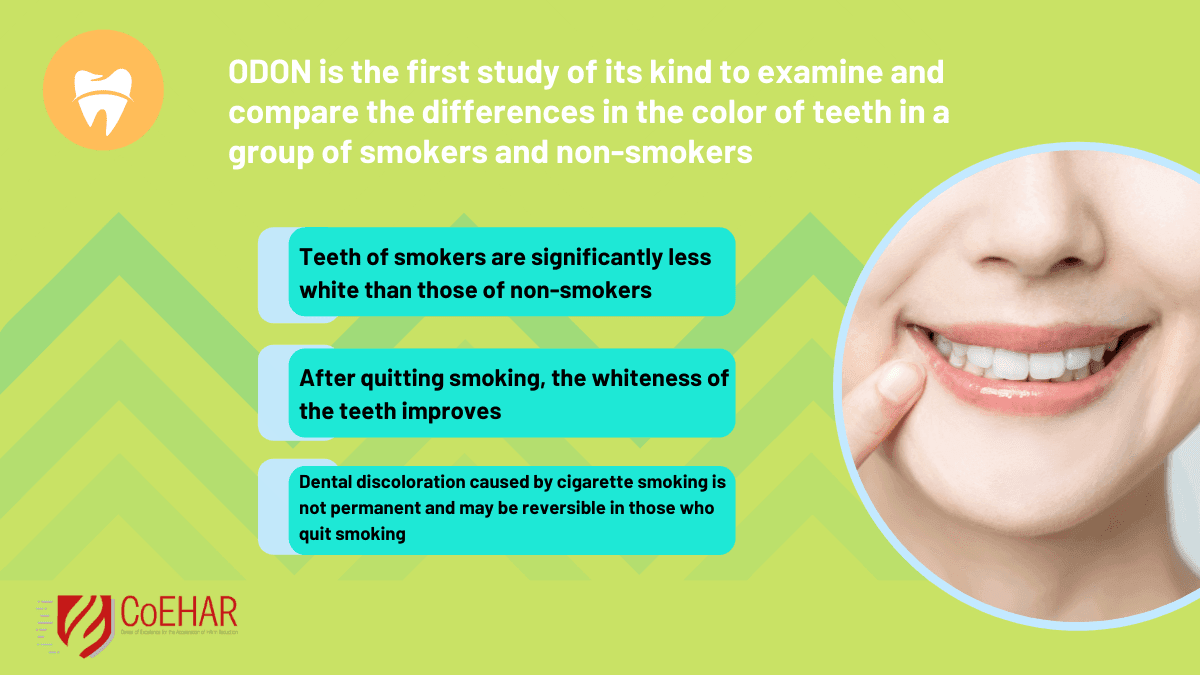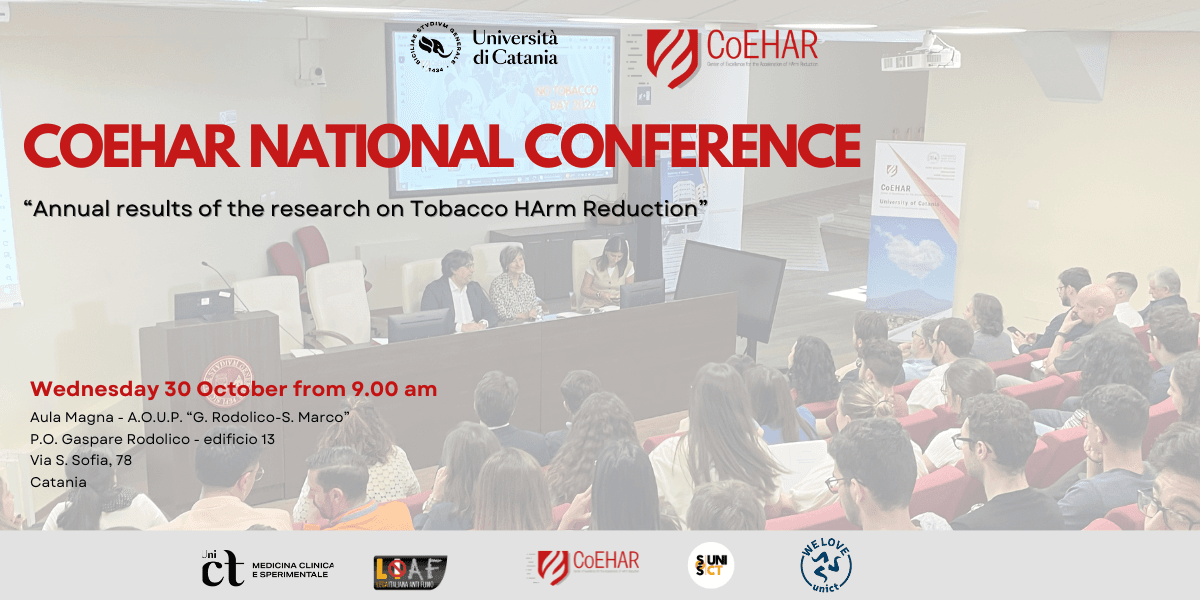Can we measure the impact of cigarette smoking on dental whiteness? How different is the smile of smokers compared to non-smokers? Does stopping smoking affect dental whiteness?
Compared to non-smokers, smokers’ teeth are significantly less white. Nevertheless, the appearance of the teeth improves after stopping smoking.
The notion of improvement in dental whiteness may become a much more compelling reason to quit smoking, especially for those smokers who perceive the appearance of their teeth (owing to tooth discolouration and “tar”/tobacco stains) as a major problem.
LINK: https://link.springer.com/article/10.1007/s10266-022-00692-x
Catania, 10 March 2022 – A group of Italian researchers carried out a new study on these questions under the coordination of Riccardo Polosa, Professor of Medicine and Founder of CoEHAR at the University of Catania, and Giovanni Zucchelli, professor of Periodontology University of Bologna.
ODON is the first study of its kind to examine and compare the differences in the color of teeth in a group of smokers and non-smokers.
The Italian researchers have shown that the teeth of smokers are significantly less white than those of non-smokers, according to a study published in the well-known scientific journal Odontology. Additionally, stopping smoking improves the whiteness of the teeth.
In general, teeth are evaluated by eye, visually comparing shades based on predefined shade scales. This is a subjective and imprecise method.
Digital spectrophotometry measurement of dental shade has been used to objectively compare the shade indices of the white of the teeth between smokers, ex-smokers and non-smokers in the research study “Repeatability of dental shade by digital spectrophotometry in current, former, and never smokers“.
“We are proud of the results of our research showing that smokers’ teeth are significantly less white than those of non-smokers. Moreover, the index of dental whiteness of former smokers is intermediate between that of smokers and that of never smokers” explains Giovanni Zucchelli.
Smoking causes dental discoloration that is not permanent and can be reversed by quitting.
According to the study, digital spectrophotometry could also be advantageous for other evaluations since it can accurately measure the alterations in the shades of white of the teeth.
For instance, how do the smiles of those who switch from conventional cigarettes to smokeless products differ? Switching to tar-free nicotine delivery technologies (such as e-cigarettes or heated tobacco products) it is possible to improve oral health and dental whiteness of smokers.
In order to address these questions, an international study is currently being conducted by CoEHAR researchers to assess the impact of e-cigarettes and heated tobacco products on the oral health and dental aesthetic of more than 600 people.

In terms of public health, these studies may have a tremendous impact, according to Riccardo Polosa, people who feel that bad breath or their teeth appearance are a major problem, can be massively influenced by aesthetic considerations to stop smoking.
THE STUDY
Research from CoEHAR has measured the whiteness of teeth in current smokers, former smokers, and never smokers in partnership with experts from the Universities of Catania and Bologna.
After the first visit, the researchers verified the measurements of the whiteness of the teeth also at seven and thirty days afterward to give greater credibility to the findings.
Using the findings of this study, the authors are now planning to conduct a larger international study that will evaluate the whiteness of teeth in smokers switching to alternative nicotine delivery technologies, such as e-cigarettes and heated tobacco.
Read also the italian press release
- ECLAT Srl. a spin-off of the University of Catania, sponsored this investigator-initiated study through a grant from the Foundation for a Smoke-Free World, a US nonprofit 501(c)(3) private foundation with a mission to end smoking in this generation. The contents, selection, and presentation of facts, as well as any opinions expressed herein, are the sole responsibility of the authors and under no circumstances shall be regarded as reflecting the positions of the Foundation for a Smoke-Free World, Inc. ECLAT Srl. is a research-based company from the University of Catania that delivers solutions to global health problems with particular emphasis on harm minimization and technological innovation. Smile Study (COE1-05).





